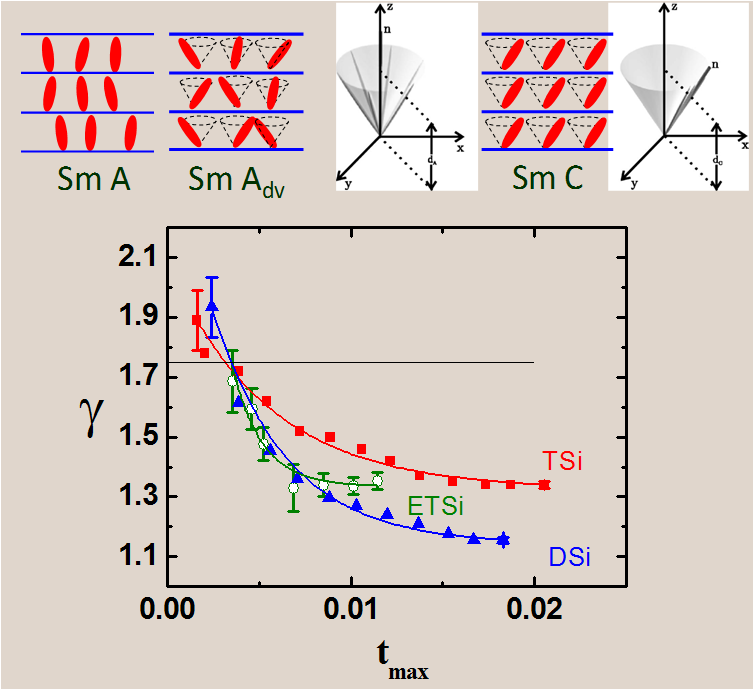Dichotomy in molecular interactions: Critical behaviour of zero-coupled layered phase
S. Krishna Prasad, D. S. Shankar Rao, S. Sridevi, Jawad Naciri and B. R. Ratna,
J. Phys.: Condens. Matter.,23, 105902, (2011); Phys. Rev. Lett., 102, 147802 (2009)

Dielectric measurements have been made on three organosiloxane liquid crystal compounds exhibiting a smectic A (SmA) to smectic C* (SmC*) transition, the SmA phase being of the de Vries type. The electroclinic response of the molecules in the de Vries phase of these compounds exhibits a double-peak profile, and is thus different from the conventional chiral SmA phase, a feature explained on the basis of an antiferroelectric (AF) block model (Krishna Prasad et al 2009 Phys. Rev. Lett. 102 147802). The differential interactions arising from the different molecular ends of these siloxane-based compounds, which are the basis for the AF block model, can also be expected to enhance the layer translational order. We present x-ray integrated intensity data that show a high (∼0.9) translational order in the SmA phase. Dielectric relaxation spectra bring out the fact that the magnitude of the soft mode relaxation parameters is dependent on the number of siloxane groups in the terminal part of the molecule. A range-shrinking analysis of the temperature-dependent dielectric relaxation strength has been carried out, using a power-law expression. The characteristic exponent shows a systematic growth with range shrinking and reaches limiting values comparable to that predicted for the 2D Ising universality class.
